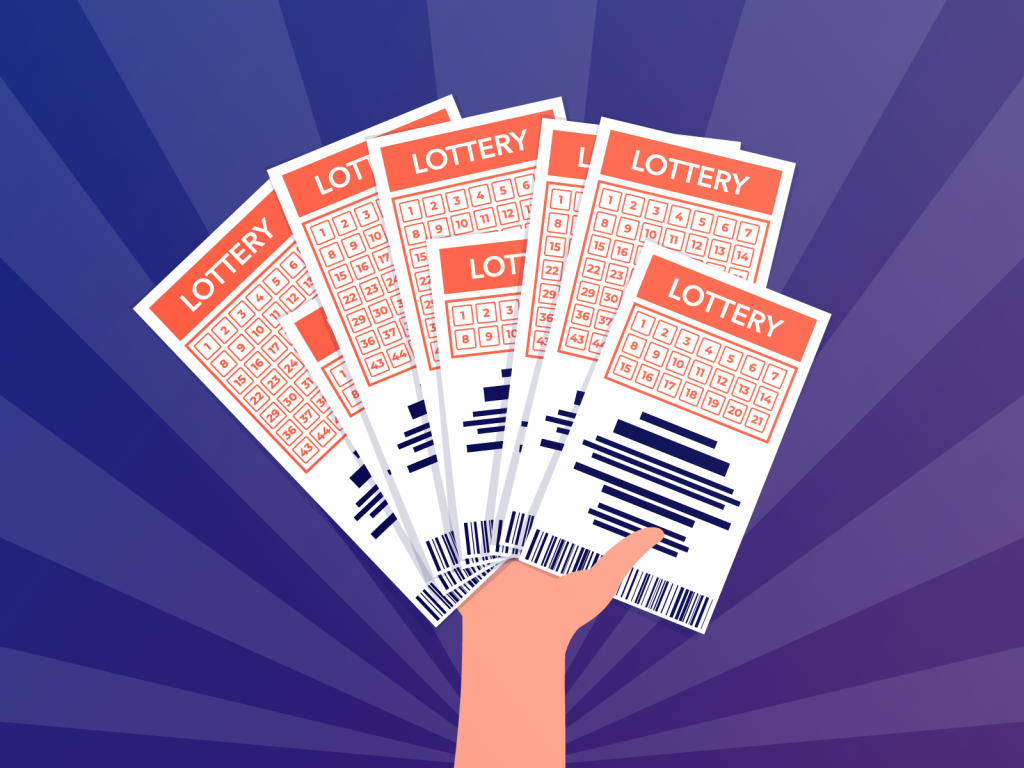Does Buying Multiple Lottery Tickets Increase Your Odds Of Winning?

What would you do if you won? How would your life change? Where would you go?
These are all questions we ask ourselves when fantasizing about winning the lottery.
After all, the massive prizes on offer, and the long delay between buying tickets and the actual draw, makes it almost impossible not to dream about how you would spend your cash.
But the chances of winning the lottery are absurdly small. In fact, so tiny are the odds that many believe entering the lottery is pointless.
To put it into perspective, you have a greater chance of getting hit by lightning than winning the lottery.
So, is buying another ticket like standing on a golf course during a thunderstorm? Will you boost your odds by buying more tickets, or are there better ways to improve your odds?
The Math Behind Buying Multiple Lotto Tickets

In theory, buying more tickets will give you more chances to win.
In smaller lottery setups, for example, a random ticket drawing at your local school or community center, there is a set number of tickets available and buying more of them boosts your chances.
So, if there are 100 raffle tickets and you buy five of them, you have a 5% chance of winning compared to a 1% chance of winning with a single ticket.
However, when it comes to lotteries, the math gets a bit more complicated. That’s because there aren’t set tickets sold, but rather a series of numbers that are drawn.
Any number of people could pick the same series of numbers that you have. And, if those numbers come in, you will all have to split the prize.
What’s more, the odds of actually winning the jackpot are miniscule.
For example, if you’re playing the Powerball lottery, you need to match five numbers, plus the Powerball to win the grand prize. Those are odds of 1 in 292,201,338.
Buying two tickets gives you odds of 2 in 292,201,338
Statisticians say that these odds are so tiny that it is hard for most people to truly understand them.
One Quora user explained an interesting way of visualizing the odds:
If you knew a dog was only going to bark once in the next nine years, you would have a better chance of guessing the exact date and time of that bark, to the second (e.g. the 12th second of 4:07am on July 15, 2028), than winning the Powerball.
Seems unlikely, doesn’t it?
In an effort to double their odds, many lottery players buy two lottery tickets.
Of course, improving your odds doesn’t hurt, but it’s also not going to make much of a difference either.
Would you really feel confident guessing when that dog would bark, if you could pick two seconds out of the next nine years instead of one?
To put it simpler, even if you bought 20,000 tickets, you would still be more likely to win an Oscar than win the Powerball jackpot.
What About Lottery Pools?

So, if buying more tickets is a waste of time, effort and money, how can you improve your chances of winning the lottery?
Well, one of the best ways is to join a lottery pool. This is a group of people who put their money together every week and buy a bunch of lottery tickets.
This means you can increase your chances of winning the lottery, without committing money to buying up loads of tickets every week.
There is, however, a catch. If by some miracle, your lottery pool does win, you will then have to split the prize between the entire pool.
For example, if your lottery pool has 200 people in it, and one of your tickets wins $10 million, you will each only walk away with $50,000. And that’s before tax.
What’s more, winning when part of a lottery pool can create a lot of problems, with arguments breaking out and many people not coping with the sudden money and fame.
Because of this, lottery pools have been the cause of some sensational fallouts over the years. Work colleagues, lifelong friends and even families have been torn apart by arguments over who should get what.
Unfortunately, many of these disagreements ultimately end up in court.
Play The Lottery Just For Fun
There’s no two ways about it, your chances of winning the lottery are miniscule, and they will stay that way no matter how you decide to enter.
But, if you are going to keep trying, it might be worth joining a lottery pool.
At the very least, you will have other people to fantasize over your potential winnings with.
And hey, should you beat the odds, check out our guide on what to do when you win the lottery.


